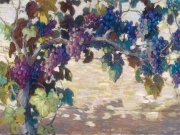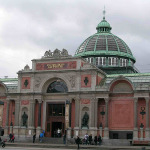 |
| Image Credit |
So, on the 1st of August, on Chick-Fil-A Appreciation Day hundreds of thousands of Americans bought sandwiches from the popular fast food chain. Chick-Fil-A made $30 million on that day, to be donated to anti-gay groups.
And when did following Jesus become synonymous with defending “traditional marriage?” Or disapproving of gays?









